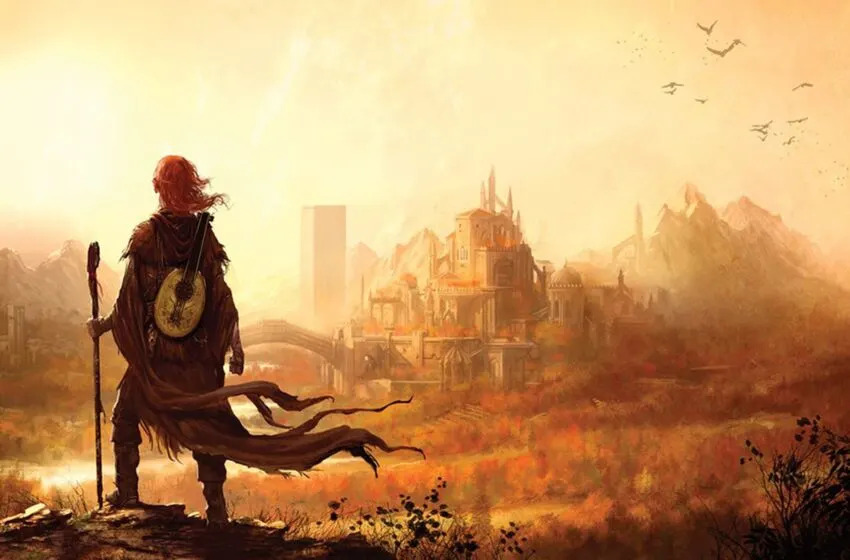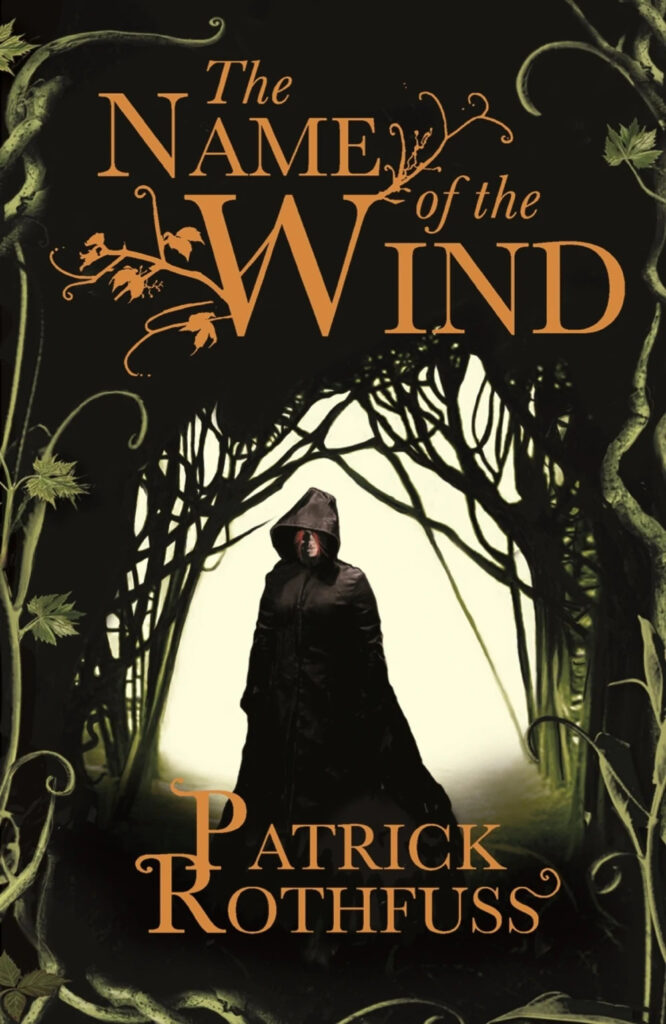
The Name of the Wind
The Name of the Wind (2007) by Patrick Rothfuss is widely regarded as one of the most popular fantasy works among the fantasy and reading communities. The admiration for this book is in superlatives, and it has become a gatekeeper for all fantasy readers.
This read is about:
-
- Is it your must story?
- What are its strengths and weaknesses? (if any).
- Is “The Name of the Wind” the best fantasy book of all time?
Is it your must story?
It’s a must read
- If you enjoy reading fantasy.
- If you’re looking for something akin to Harry Potter with a darker tone but a high fantasy (basically, a fantasy tale narrated on an epic scale and set in a different world).

What are its strengths and weaknesses?
This post is only about the first book of the Kingkiller Chronicle, The Name of the Wind, and not the other works in the series.
Strengths
-
- Narrative Technique
Firstly, what distinguishes it from many other fantasy stories is its non-linear narrative technique (where the events don’t occur chronologically). Here, the protagonist reminisces about his adventures, heroic deeds, and dark corners of his life. This choice of narrative technique is uncommon, particularly in high fantasy, which is typically composed of heroic tales narrated chronologically. Moreover, it’s not just any regular non-linear story but a skillfully described and executed one. This narrative approach offers readers a taste of fresh air and a potential break from the usual narrative pattern.
-
- Capturing Feelings
Stories or narration are frequently entangled in the execution of plot events with actions, visuals, style, and sometimes dialogues, but a critical component of storytelling, the “feel,” takes a back seat. However, Patrick Rothfuss impressively captures the feelings of the moments with his remarkable prose and detail. The narrative leans toward “how it feels” rather than “how it looks.” The capturing of feelings and driving out of emotions is undeniably a preeminent reason that captured the hearts of a multitude of readers.
-
- Building Mysteries
Mystery and suspense create the highest anticipation, which further leads to strong engagement from the audience. Devising such a build-up is absolutely necessary to hook the audience, especially the readers. The author cleverly builds mystery after mystery, concealing most of the information and luring readers in anticipation of a payoff. Although withholding so many answers can be a double-edged sword. Nevertheless, it’s worth noting how well the author plots and structures the secrets.
-
- Magic System
The Name of the Wind has one of the most fascinating magic systems (how the magic works in the fictional world). It’s more of a hard magic system (where magic has rules and boundaries). And what makes this magic system compelling is that it loosely derives from science and nature, making it more grounded rather than magic can do all. The use of magic in this world relies on the knowledge and shrewdness of the wielder. This effectuates a certain amount of intelligence to the plot events and favors creating such thrilling scenarios.
Even though this site is all about stories, there is something that deserves appreciation: the author’s writing. His masterfully crafted prose added a poetic feel to the narrative and certainly added value to the story helping it to become the readers’ favorite.
Weaknesses
-
- Progress
Firstly, it’s intended to be a trilogy. And not just a regular fantasy trilogy, but an epic fantasy, for that matter. The design of the world, the epicness of the tale promised, and the constraint of it being a trilogy make it all the more important to cover a certain amount of ground and infuse a sense of progression into the story. On the contrary, the story does not seem to be making any distinct progress and appears to be meandering in places where it is not necessary.
Secondly, withholding answers for too long can give readers a sense of immobility, considering this book is 1/3 of the entire series. This ties in with the earlier point about being a double-edged sword.
-
- Background
When new material or elements, such as fictitious language, names, people, history, culture, and even concepts or ideas, are introduced into the story. It calls for a proper introduction and can be insufficient without a brief background. In the absence of such a crucial context, logical explanation, or understanding of the background, all prior information can go in vain or perhaps fade as we move further into the story. Even if we understand things down the road, it won’t be as effective, and readers may miss out on details. Unless the reader is diligent enough to take notes on such instances or reread the book, it’s a common issue when a story is heavily fictionalized, and The Name of the Wind is no exception. There is so much information to acknowledge but so little to grasp. It all comes down to the order of events and how well they are planned and presented without giving too much away.
Is The Name of the Wind the best fantasy book of all time?
From all the reviews and opinions, one thing is abundantly clear. It’s not about the story, but rather how it made you feel. It goes back to our captured feeling point. Now, for the question, is The Name of the Wind the best fantasy book of all time?
It depends on your definition and interpretation of fantasy. If fantasy for you is an escape and feel, then The Name of the Wind is one of the best fantasy books of all time, if not the best.
If fantasy for you is more about technical stuff, such as concepts, worldbuilding, magic systems, character arcs, and storylines. Then it’s definitely not the best fantasy book of all time.